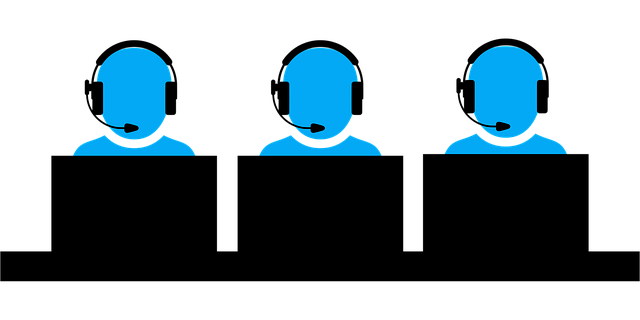By 2025, email marketing automation is a strategic asset, boosting engagement and sales through personalized campaigns based on CRM data analysis. Advanced tools offer drag-and-drop interfaces, segmentation options, and AI integration for targeted messaging across multiple channels like WhatsApp. Automated workflows, analytics, and reputation management ensure optimized campaign effectiveness.
In today’s digital landscape, email marketing remains a powerful tool for engaging customers. With the evolution of technology, email marketing automation has become more sophisticated in 2025, offering businesses unprecedented efficiency and personalization. This article explores the best email marketing automation tools available, delving into key aspects like understanding automation basics, creating personalized campaigns, leveraging AI for precise targeting, seamless workflow integrations, and tracking success through advanced analytics. Discover how these platforms revolutionize your marketing strategies.
- Understanding Email Automation Tools in 2025
- Top Platforms for Personalized Email Campaigns
- AI-Powered Segmentation and Targeting Techniques
- Integrations to Boost Your Marketing Workflow
- Measuring Success: Analytics for Optimal Results
Understanding Email Automation Tools in 2025

In 2025, email marketing automation has evolved into a powerful tool for businesses to enhance their customer engagement and sales strategies. It’s no longer just about sending automated emails; it involves creating personalized, data-driven campaigns that cater to individual customer needs. Automation allows marketers to streamline repetitive tasks, enabling them to focus on strategy and creativity. By leveraging advanced technologies, these tools can analyze vast amounts of customer data stored in CRM (customer relationship management) systems, providing valuable insights for targeted marketing.
The best email automation platforms offer drag-and-drop interfaces, making it easy for marketers to design complex campaigns without coding knowledge. They also provide robust segmentation and targeting options, allowing businesses to group customers based on behavior, demographics, or any other relevant criteria. This level of customization ensures that each customer receives content tailored to their preferences, fostering stronger relationships and increasing the likelihood of conversions.
Top Platforms for Personalized Email Campaigns

In today’s digital era, email marketing automation has emerged as a powerful tool for businesses to connect with their customers in personalized and meaningful ways. The top platforms leading this charge offer sophisticated features that enable marketers to create, send, and track high-impact email campaigns tailored to individual subscriber preferences. These tools integrate seamlessly with customer relationship management (CRM) systems, leveraging valuable customer data to deliver targeted messages that resonate with specific segments.
WhatsApp marketing has also gained traction as a complementary channel for businesses looking to enhance their communication strategies. Automation platforms now provide ways to bridge the gap between email and WhatsApp, allowing for more dynamic and multi-channel interactions. By combining personalized email campaigns with direct messaging through WhatsApp, businesses can foster stronger connections with customers, improving engagement and driving sales. This integration of email marketing automation with social media marketing automation is transforming how brands interact with their audiences in 2025 and beyond.
AI-Powered Segmentation and Targeting Techniques

In the realm of email marketing automation for 2025, Artificial Intelligence (AI) is transforming how businesses segment and target their audiences. AI algorithms can analyze vast amounts of customer data, from browsing behavior to purchase history, enabling precise categorization based on unique attributes and preferences. This level of personalization goes beyond basic demographics; it involves predicting customer needs and tailoring communications accordingly.
Through machine learning, these tools can identify patterns and trends that would be difficult for human analysts to discern, ensuring that marketing messages hit the mark every time. Moreover, AI-driven segmentation enhances the effectiveness not only of email campaigns but also complements other channels like social media marketing automation and text message marketing by providing a comprehensive 360-view of each customer, leading to higher engagement and better conversions.
Integrations to Boost Your Marketing Workflow

In today’s digital landscape, efficient email marketing is key to fostering strong customer relationships. To streamline your marketing efforts, look for tools that seamlessly integrate with other platforms you use daily. Integrations like customer relationship management (CRM) systems, social media marketing automation, and analytics software can boost your workflow productivity tenfold. By connecting these tools, you can create a unified hub where data flows effortlessly, enabling personalized content creation, targeted campaigns, and real-time performance tracking.
This level of integration allows marketers to focus on strategy rather than manual data transfer. Automated workflows triggered by customer interactions or specific behaviors ensure that every email is sent at the optimal time, increasing engagement and conversion rates. As you explore email marketing automation tools for 2025, prioritize those with robust integration capabilities to elevate your marketing game and stay ahead of the competition.
Measuring Success: Analytics for Optimal Results

In the realm of email marketing automation, success is not merely about sending out emails; it’s about understanding and optimizing every step to maximize engagement and conversions. Measuring success involves delving into analytics that provide insights into subscriber behavior, email open rates, click-throughs, and conversion paths. These data points are crucial for refining campaigns and personalizing content. Advanced tools often incorporate AI chatbots to analyze trends and offer tailored recommendations, ensuring each message resonates with the audience.
Additionally, reputation management plays a significant role in email marketing automation. Tracking sends, bounces, unsubscribes, and complaints helps maintain a positive sender reputation. Automation tools that integrate these analytics enable marketers to promptly address issues like low deliverability rates or high unsubscribe rates. By continuously monitoring and adjusting their strategies based on data-driven insights, businesses can enhance the effectiveness of their email marketing campaigns.
Email marketing automation continues to evolve, offering businesses powerful tools to enhance customer engagement and drive conversions. By leveraging personalized campaigns, AI-driven segmentation, and seamless integrations, marketers can optimize their strategies for maximum impact in 2025 and beyond. Stay ahead of the curve by exploring these top platforms, ensuring your success in the digital marketing landscape.
